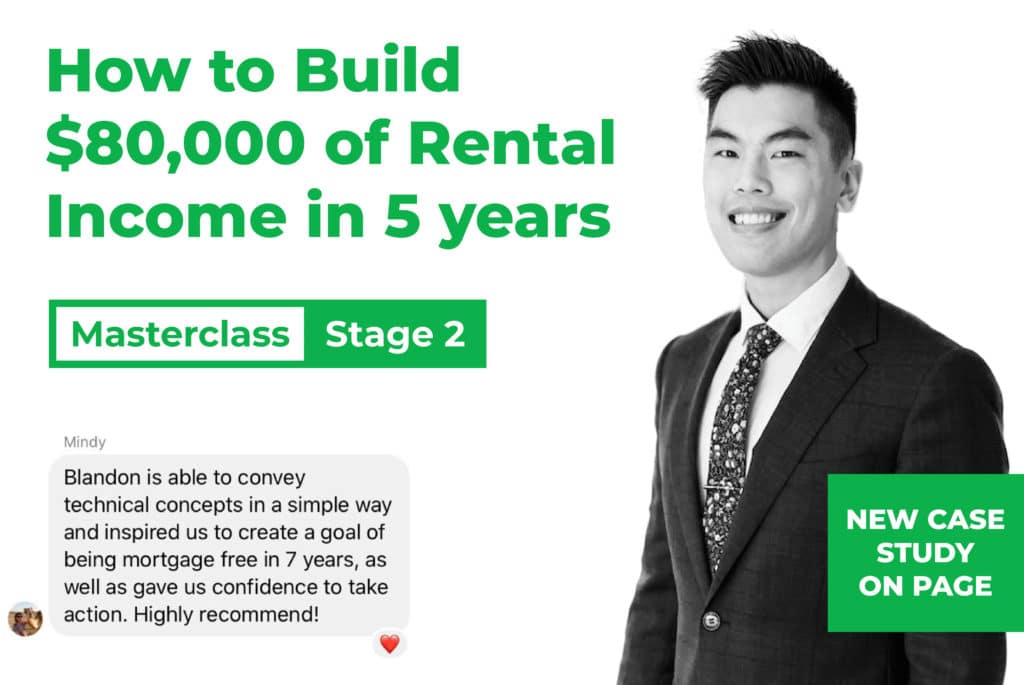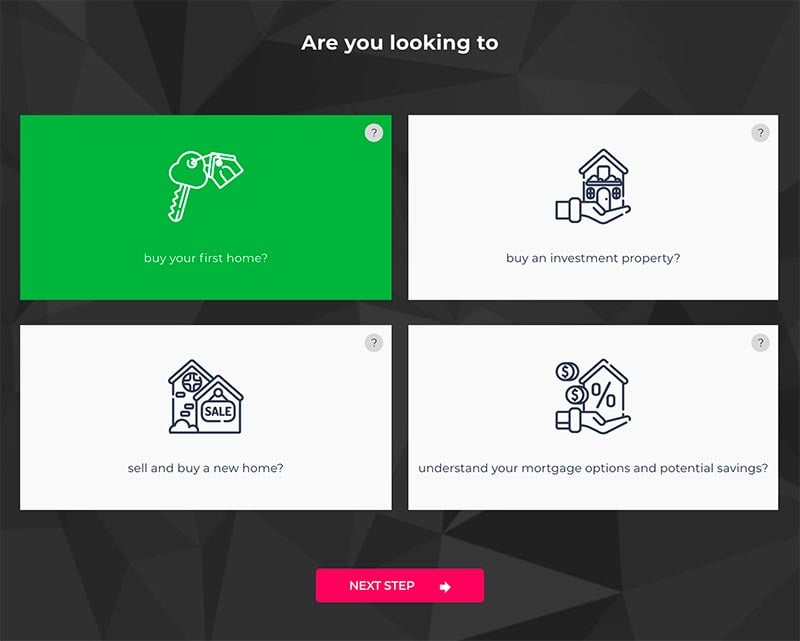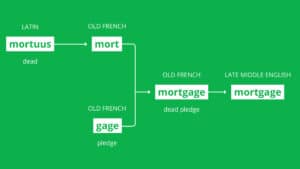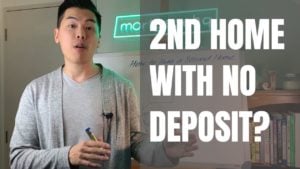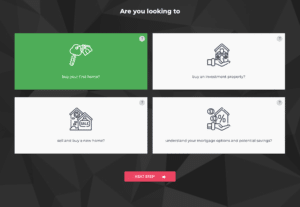What is debt consolidation?
Debt consolidation is when you take some or all of your different loans and put them into a new loan with better terms, usually reducing your repayment amounts through lower interest rates or extended terms. This is to pay your debts off in full and renew them with the existing loan provider or a new lender. For example, consolidating your credit cards from one bank into your mortgage at a different bank. This leaves you with only one creditor and one consolidated debt which should make it easier and cheaper to manage.
This can be done using an unsecured personal loan with high-interest rates, or if you own property, it can be done by topping up your mortgage(s) meaning you get the low home-loan interest rates. This takes your 20-22% interest rates debts to sub 4% mortgage rates (yes it extends the terms but it gives you more time to get on top of the debts and acts as a reset).
Andrew Malcolm, Managing Director of mortgagehq points out “the aim is to pay off your high-interest debt by using low-interest mortgage debt, this means you are paying as little as possible and gives you the best chance to pay the principal down as fast as possible”.
If you have debts on interest rates that are much higher than your mortgage interest rates, and/or on shorter terms, this will mean your repayments are much higher than they could be. If you consolidate your debts into your mortgage you can simplify your repayments taking advantage of the equity in your home and begin to get back on top of your debts resulting in a surplus of money each week. This will free up borrowing power if you still have other projects or objectives that require capital.
How does it sound to take your credit card debts which are 20% interest rates and put them onto something closer to 4% which is what mortgage rates are currently?
Missing payments on your cards, insurance or mortgages will lead to debt collection services knocking on your door and damage to your credit score further hindering your borrowing options in the future. Most of the time your missed repayments and other debts can be consolidated into a mortgage at a main bank or in worse situations at a non-bank lender. We can help you with refinances, restructures, second mortgages or caveat loans. It should be noted that we do NOT help with personal loans unless you have a mortgage or property to use as security. Check out sorted.org.nz if you do not have mortgages or property to help you with your debt consolidation.
To instantly see your potential short term savings,
use the 90-second online mortgage calculator.
Who is debt consolidation for?
Debt consolidation is a tool a lot of kiwis use from very different backgrounds, some people with large incomes run into trouble, other times it is those who are striving to get ahead by purchasing one small property which stretched them too far. It is often the case that a family had a holiday or emergency situations like medical or funeral costs and these loans need to be tidied up later.
After a few years of having a mortgage with the distractions of life, many families’ personal budget flies out the window, their bank accounts get messy and hard to manage. Perhaps they had an extra top up on the mortgage for renovating or one or two credit cards from Christmas. At this point, if you are not careful you can lose track.
If your bank is telling you you’re unable to re-assess your lending position (borrow more or consolidate debt), there may be other options they’re not aware of, perhaps at other banks or non-bank lenders. Perhaps things can be tidied up without switching banks, you just need a little guidance on the best way to apply.
At mortgagehq, we often help clients consolidate debt, and free up cash flow to manage their personal budgets more effectively.
What if I don’t own my home or any property?
You could try to consolidate debt onto another personal loan – but be careful about the interest rates that are available for personal loans. However, as mortgage advisers that is not something we can help you with.
Debt consolidation can work for gem finance, instant finance and other debts such as:
- Car Loans
- Personal Loans
- Credit Cards
- Q Card
- Gem Visa
- Asset Finance
- Tax payments
- Farmers Card
- Etc
Refinance before a mortgage default or taking a mortgage holiday.
If you look realistically at your situation are you heading towards defaulting on your mortgage? If so the best time to act is today, actually it is sooner than that. It is right now. Do not bury your head in the sand, the earlier you get in touch with us the more and better options we will have for you – and the quicker you will be in control again.
Book a 5-minute phone call.
Find the options available that you are not aware of.
Four reasons to consolidate debts.
Lower monthly payments
On your mortgage, you will get a much lower interest rate than personal loans, even if you have to use a non-bank lender. As well as the lower interest rate, you can restructure debt that is due over 2-5 years to your mortgage which is likely to be in the vicinity of 10-25 years.
Raising your credit score
Defaulting on payments will quickly damage your credit score
Having a single creditor
Paying once instead of multiple times a month makes managing your debt much easier.
Fixed end date
If you are only paying the minimum payments on your credit card you could be paying it for decades, consolidating will give you a fixed end date.
Good debt vs bad debt.
Good debt is generally referred to as any debt that is used to buy an asset that will grow in value over time or produce an income. Or more specifically an asset that makes more money than the debt costs you. People can grow their wealth by utilising good debt to buy assets like houses that go up in value and provide them with rental income.
Where we see people make the biggest mistakes is when they get multiple credit cards from different banks, use GEM Visa, Q Card and other financial products to fuel a lifestyle that is beyond their affordability. Do not kid yourself. Debt is borrowing from your future self. This is fine as long as you have a plan and spend wisely over the long term.
Imagine you are out for lunch and buy a poke bowl, just before you order you get a tap on the shoulder from your past self holding out their hand for some money – for a TV you no longer use and a car that you’ve already written off. You go to pick up dinner, and past-self taps you on the shoulder to pay for your trip to Bali in 2018. You go to put petrol in your car and past-self taps you on the shoulder again to pay for all the meals out in 2019… the cycle continues as your past-self asks you for money and you think ‘if only I can borrow from my future self.’
Don’t fall into debt traps. Reset things with a debt consolidation into your mortgage. Look at your decisions with a critical eye and start budgeting better. If you want to build wealth with debt you need to master it so you can accumulate assets that produce cash flow and capital gains, not fill your belly and make yourself look good on the road.
What are the risks of debt consolidation?
You could lose your property.
Remember your mortgage is secured against your property – that means if you default on your mortgage the bank can repossess your property and sell it. However when we restructure or refinance your mortgage you are limited by certain LVR limits, which typically means you can not top-up your mortgage past 80% of your home’s equity – so this offers some protection for you.
Longer timeframe to pay off your mortgage.
When you refinance or restructure and extend your mortgage term – it will take longer to pay off your mortgage resulting in more being spent on interest.
Potential to get into more debt.
When you consolidate you free up credit – if you are not cautious you may end up spending too much and get in more debt than you started with.
Best credit gets the best terms.
When you have missed payments and your credit score has decreased you will find it hard to qualify for the best interest rates. Once again, please contact us as soon as possible to help you.
Fees.
If you still qualify to use a bank our advice and normally your loan establishment is free. If you need to use a non-bank lender there is an establishment fee which is normally rolled into the restructured debt. This is fully disclosed in advance for you to discuss and consider.
David Chamberlain mortgage adviser explains with a recent example:
I met someone who was stuck, their short term debt had grown to the point he was struggling with life and debt repayments, he came to us with eight short term loans totalling $52,900, with minimum monthly repayments of $1,894.
- BNZ credit card $21,500, $581 per month
- ANZ personal loan $12,000, $400 per month
- Gem Visa $8,000 $216, per month
- Hire Purchase $4,000, $108 per month
- Overdraft ASB $1,000, $55 per month
- Hire Purchase $1,900, $325 per month
- ASB Credit Card $2,000, $55 per month
- ANZ Credit Card $2,500, $154 per month
- TOTAL $52,900, $1,894 per month
We workshopped through a variety of options going between him and various banks and lenders. The best option he had was:
- Leave his mortgage at BNZ, negotiate the lowest market rates available at the time (3.99%).
- Use a second mortgage at Avanti Finance to consolidate all of the short term debt on a 14.95% interest rate over a 7-year term.
A lot of his short term debts were on interest rates above 20%, so we significantly dropped this and increased his debt term – with the combination of better interest rates and a longer-term his monthly payments plunged from $1,894 to a more manageable $907 per month.
This solution was focused on quickly fixing his cash flow. The repayments for his new situation were $907 per month. When you need a non-bank lender like Avanti Finance there is an establishment fee payable which gets rolled into your consolidated debt – the monthly $907 included paying all his short term debts and the fee.
A hugely important point is that the term makes a huge difference to your monthly cash flow.
If we use his total of $52,900 as an example with a conservative 15% rate over a five-year term each month you would be paying $587 in principal repayments and $650 in interest repayments. The cash flow strangle comes from both short term principal repayments and the high-interest repayments. The higher interest isn’t the only problem, the short term principal repayments are equally painful.
When you consolidate short term debt onto long term mortgage debt you extend the term from 3-5 years out to 10 or 30 years. But remember: you still owe the money. Debt consolidation is not a magic way to disappear your debt, and as you increase your term you fix the cashflow issue but you increase the total interest paid over the life of the loan.
Practical debt consolidation
There are two typical ways to consolidate debt onto your mortgage:
Refinance: add the debt to your 25-year mortgage by changing banks and rolling everything together.
Restructure: get a separate mortgage, often using a 10-year term, which clears your debt.
The mortgagehq process
- Take time to talk with you and understand both your problems and goals.
- Assess what repayment terms and monthly payments are comfortable for you so you can realistically stick to it.
- Assess your account conduct, this is useful in determining which bank or non-bank lender to use, and what products will be available to you.
- Negotiate fantastic interest rates and conditions.
- If we place you with a non-bank lender, we will make a mid-term plan for you to refinance back to a main bank as soon as possible.
Get your mortgage sorted at the same time.
Here are three side-benefits to refinancing you might not have considered:
- Properly reassess your mortgage structure and ownership with a professional mortgage adviser.
- Cashback. If you refinance and change banks there may be an opportunity to get a cash incentive from the bank helping to pay off some of your debt instantly.
- Leading market rates. Perhaps your mortgage is stuck on historic interest rates that are higher than current rates, let’s fix your mortgage simultaneously.
Get your debt sorted by using your mortgage. Here are some options so you can take action right now!
- DIY, Discover your options and potential savings by using the 90-second online mortgage calculator.
- I’m serious and ready now. Fill out an online mortgage application. This is the fastest and easiest way to convey all of your information so a mortgage adviser can perform a full review of your situation.



